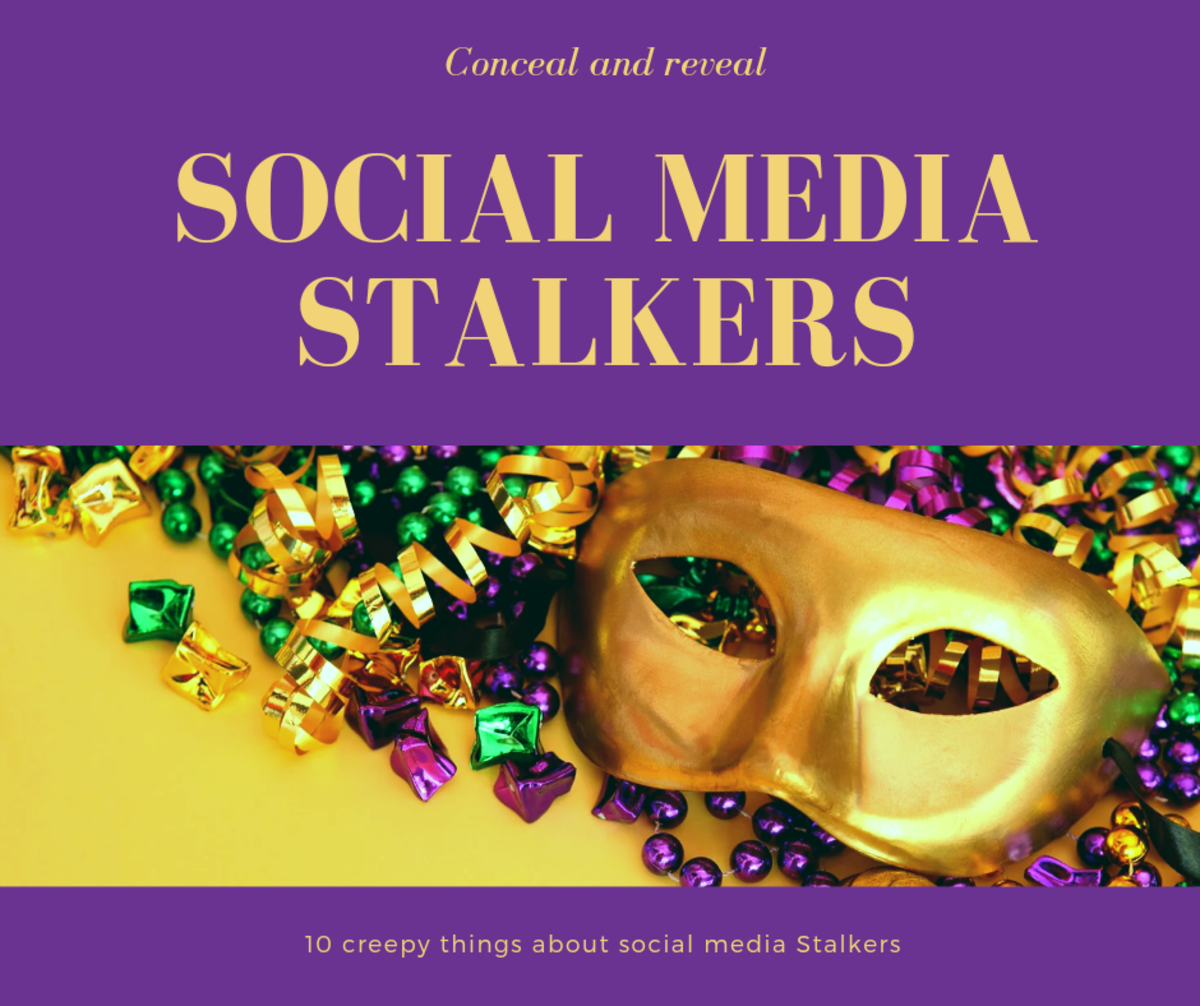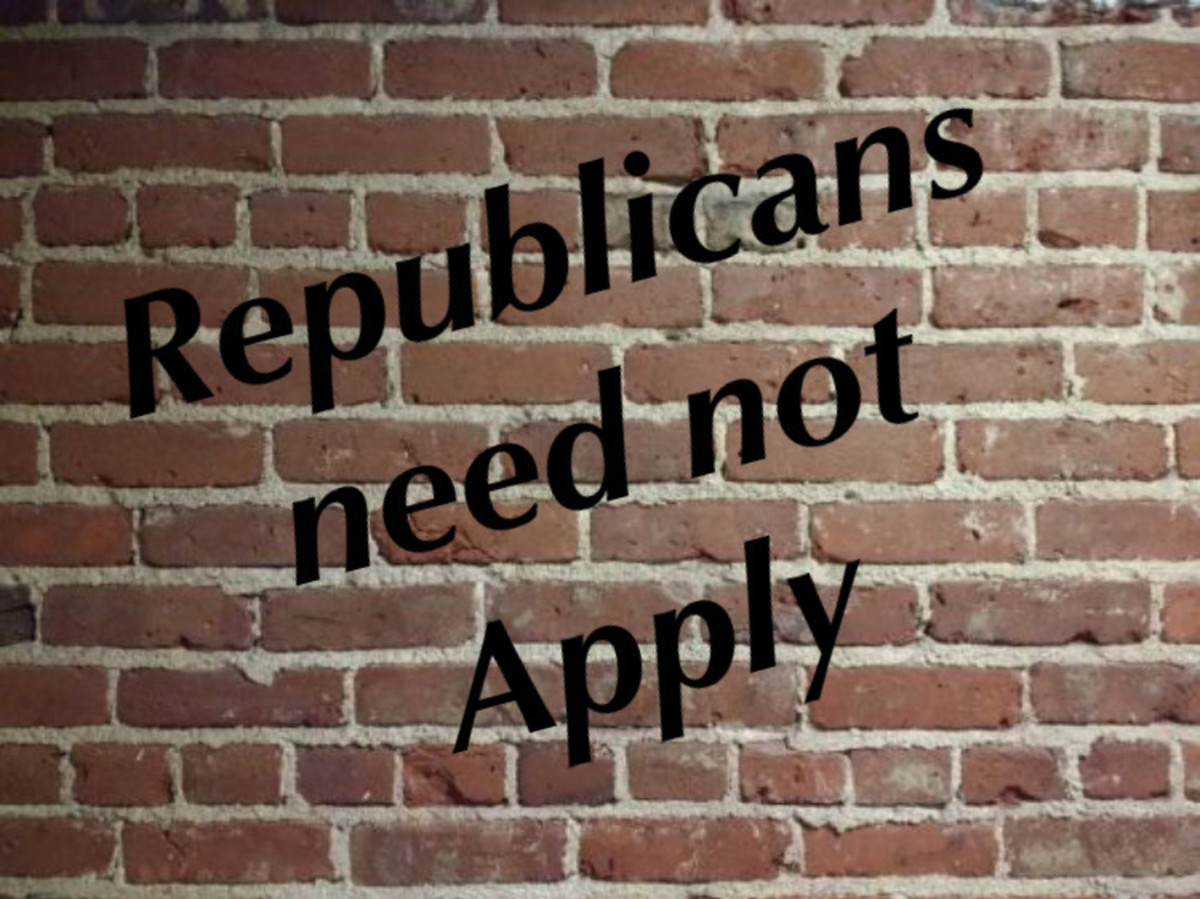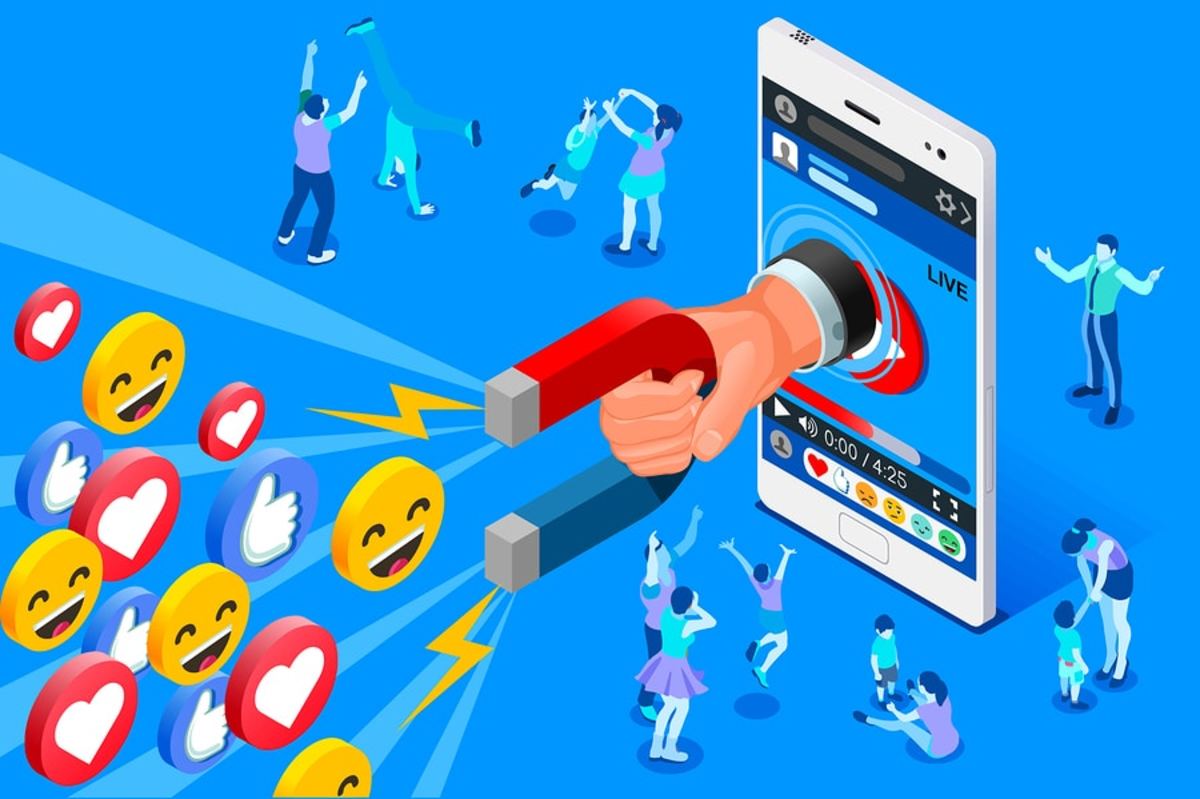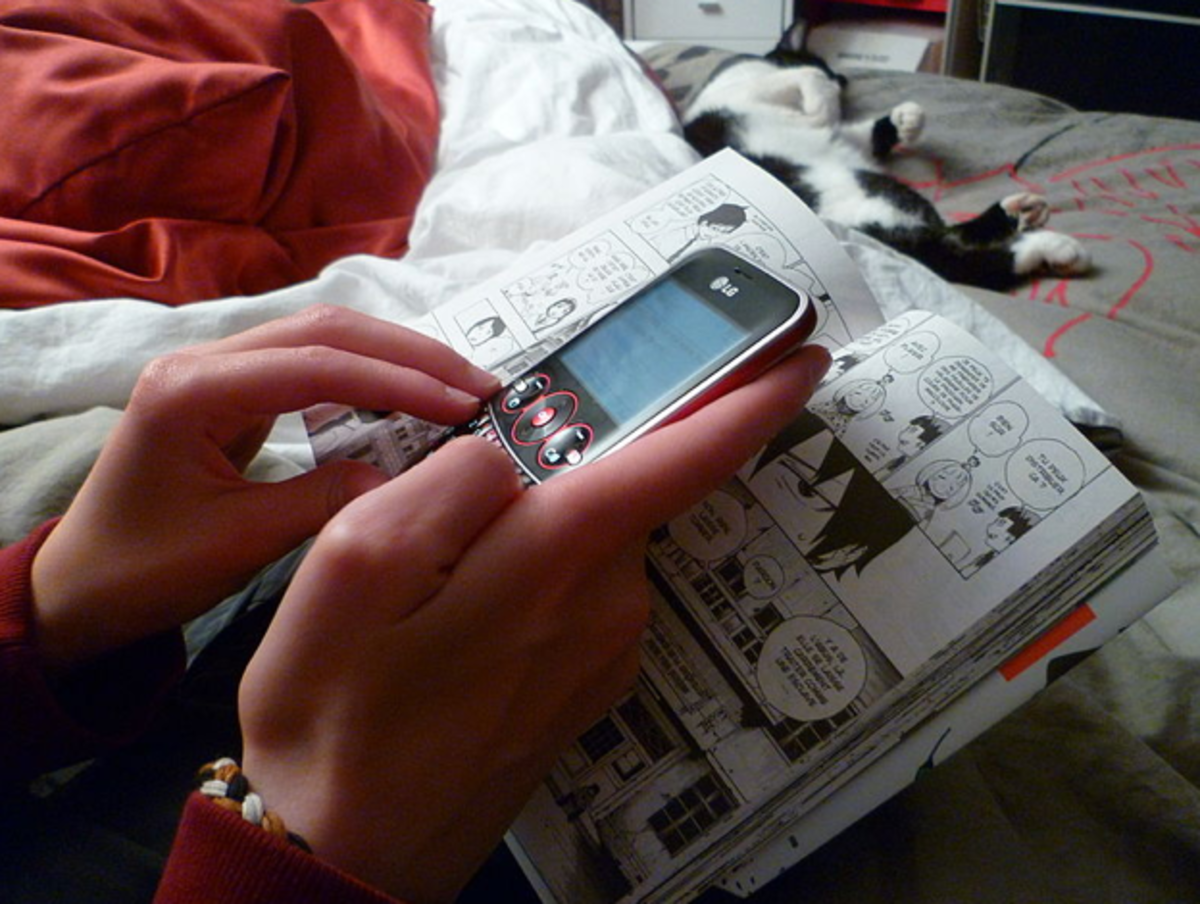Bragging on Facebook and other social sites
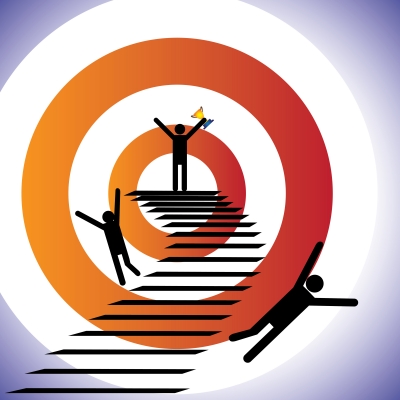
What is bragging?
Some people use the word ‘bragging’ to describe the merest mentioning of a personal achievement, as if the words in the definition of bragging have no meaning.
Let’s have a good look at the definitions of ‘bragging’ -
- Bragging is a gaudy, pretentiously outward display.
- Bragging is a lack of elegance as a consequence of being pompous and puffed up with vanity.
Other attributive adjectives for a display that may indicate bragging are, vulgar, grand, boastful, swell, fancy, vaunting, splashy, kitsch, and ostentatious.
A braggart is a person who boasts about their achievements or possessions.
In the meaning of the word boast we see again that it is not merely the mentioning of a personal achievement, but a display of excessive pride.
Boasting means 'talk with excessive pride and self-satisfaction about one's achievements, possessions, or abilities.
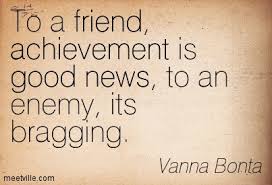
There is a place and a time for everything
NB: For the sake of those who can still not distinguish between bragging and impulsive announcements of personal achievements, I keep on using the word “bragging’.
Dr. Susan Speer (BA (Hons), MSc (Econ), PhD., C.Psychol, FHEA, who conducted one of the very few scientific studies of bragging, wrote an excellent article on “self-praise” - The Interactional Organization of Self-praise. According to her acceptable self-praise is based on two considerations: epistemology and social norms.
Epistemology refers to the truth of a self-praising announcement. In other words, the one who had indeed won the 1st prize in one or another contest is not praising themselves when they tell their friends about it. They are reporting the truth to people who would like to know the truth.
Social norms are the rights and wrongs in a specific culture or society.
Bragging is the norm on Facebook and other social sites
By now all of us know that what some people describe as 'bragging' and 'self-praise', and others describe as announcements of personal achievements, is in fact the norm on Facebook, Twitter, Instagram and other social sites.
BUT WHY?
By posting one's status, which may include our mood, thoughts, and also our happiness about one or another achievement, or for that matter, our sadness about one or another failure, we present ourselves as individuals in cyberspace - a place where we don’t see people in flesh and blood, but where we have to form an idea of who they really are.
How can we form any ideas when people don’t show themselves via pictures and announcements of all sorts? Imagine ‘bragging’, 'self-praise', announcements of personal achievements, whatever you want to call it, was not permitted on the Internet, would there have been any successful social media?
So, we may as well accept that "bragging" is the norm in cyberspace, and we may decide whether we want to be part of a society in cyberspace, or not.
What about TIME? When is the right time to announce a personal achievement on Facebook, or wherever we post our status updates?
By now all of us know that time is totally irrelevant in cyberspace. NOW is the moment we post a status update via text or pictures, but it will be NOW for the one who reads it at whatever time of the day or night. NOW may be in the middle of the day for one, while for another it may be in the middle of the night. Time has no relevance in cyberspace. In fact, it takes effort to determine exactly when our friends posted there latest status updates.
When we read a so-called ‘brag’, we have to remind ourselves that a true bragger’s intention to attract notice and to impress others is not merely rooted in a normal happy feeling of being proud, and the instinctive need to share their happiness with their friends, but in one or another psychological disorder, such as Narcism, a superior complex, or perhaps a desperate need to be recognized, accepted and loved.
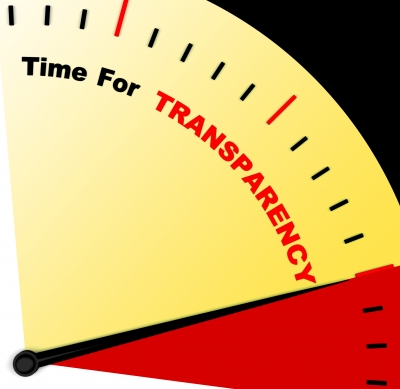
Research on bragging
Harvard neuroscientist Diana Tamir, and her colleague Jason Mitchell, proved via MRI’s that talking about ourselves triggers the same sensations of pleasure in the brain that are triggered by food and money.
I presume we will only experience pleasure when food and money are on our tray and not on someone else’s. Keeping our yearning for food and money in mind, in fact our desperate need for it, I can clearly comprehend our instinctive need to show ourselves, and everything we have obtained and achieved, to our friends, and even for the entire world to see. This need is deeply rooted in our basic human needs, which include our need to be recognized, and to be accepted, loved and protected. Don’t bluff yourself by believing that you can survive without the support of other human beings! The more friends we have, the better is our chance to survive.
Perhaps YOU have nothing to brag about because you are finding yourself in unfortunate circumstances. Perhaps you share the following opinion about bragging –
“Bragging is an epidemic. It's a total turn-off to me when I get unsolicited boasting from another person. Don't tell me how great you are, show me. The only time to self-promote is on a job resume or interview. Even then, you should do it in a low key fashion. Whatever happened to modesty and humility?” - Deborah M.
What kind of super-human being is Deborah, I wonder. Is she able to keep her accomplishments to herself? Perhaps she has never achieved anything to be proud of. Perhaps she is bitter because she doesn’t feel at home among her performing relatives and friends? Her children may have one or another disability. Perhaps one or another religious concept has squeezed her into a box where she can not have any objective views. Or what could be the reason of her inability to cope with the bragging that goes on in cyberspace?
This is the questions I'm asking myself when I read comments like this.
After all, bragging, whether in moderation or excessively, is not a contagious, deadly disease.
Every human being has the right to announce their personal achievements and also their failures.
Bragging rights should be use with caution
Susan Krauss Whitbourn (Ph.D.), urges her readers to use their bragging rights with caution. “Almost no one likes a show-off but almost everyone likes to show off, at least a little,” she says. “The best way to brag about yourself to others is probably not to brag at all. Let other people do the bragging for you…. However, because your feelings of self-esteem and self-confidence rest on being able to take pride in your achievements, bragging is okay and healthy." Read her article about bragging HERE.
By keeping our boastful instincts in check, we will not offend anyone, says psychotherapist and psychoanalyst, F. Diane Barth L.C.S.W. She wants her readers to realize that there is a fine line between showing-off and genuinely outlining accomplishments. Showing-off and bragging can be a subtle and unintentional way of putting someone else down. She suggests five ways of managing our show-offs. Read her article HERE.
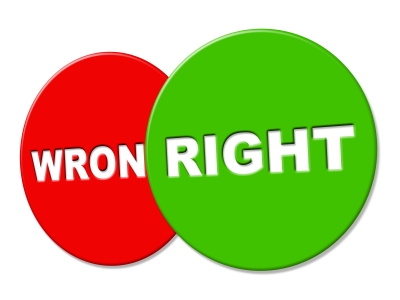
Perspectives on bragging
While researching the topic, I collected some interesting perspectives on bragging -
Rebecca - So often we feel pride in our accomplishments, but also feel it tactless and fatheaded to express that pride, that joy, that sense of self-satisfaction.
Arthur Conan Doyle, via Sherlock Holmes in The Adventure of the Greek Interpreter - To the logician all things should be seen exactly as they are, and to underestimate one’s self is as much a departure from truth as to exaggerate one’s own powers.
The rich never speak about money. By bragging, people indicate that their sense of a good self esteem is not fully established. They are seeking our opinion in order to judge themselves! By being pleasantly positive and agreeing, we meet the emotional need of a bragger, and their bragging will stop. - Claudia
If someone is sharing good news about themselves such as an accomplishment or the birth of a baby, new house or car, I do not consider that bragging. They are just sharing their happiness, and either you are happy for them or you aren't. Bragging is when a person goes on and on trying to prove that they have the best life, best kids, best wife/husband, and life, while in reality that person lacks something very important in their life. When we have the best, we do not need to prove it to anyone. – Linda
Kate - It is not about the bragging, but about the person. When a sweet and honest person share her happiness about getting a new car, you will be happy for them. But if the person is a jerk and prone to selfishness and excessive pride, you will be annoyed. It truly comes down to knowing the person behind the words.
Ansie - Grandparents cannot keep themselves from bragging about their grandchildren. For them bragging comes natural, like breathing. Forbid them this and they will surely die.
Svetlana - I think bragging on Facebook is the same as bragging anywhere, it just reaches a wider audience at the time "convenient" for them. Maybe bragging a little bit makes one and others feel good, bragging a bit too much is irritating. So any effect that bragging has, it is multiplied/magnified by social media - a good feeling or resentment. So, the difference? The scale. The problem? If one brags face to face, he can adjust "the volume" according to the reaction of the counterpart, but on Facebook, one is better to make a judgment call in advance. We are not aware how annoying we can become unless someone tells us. "Hey, do you realize that you are overdoing it?"
Suzette - Bragging on Facebook doesn't bother me because that is one of the functions of Facebook. If you can't brag on Facebook where can you brag? I love to hear what others are doing and how well they are doing it.
Shannon - I think it all depends on the manner in which it is done. Same as off FB and face to face. Bragging to share excitement with friends is not bad. We naturally want to share the good perhaps more than the bad with those we love. It's what provides inspiration and encouragement, especially when those we love are genuinely excited with us and for us. However, when bragging becomes an attempt to prove someone else is better than everyone else, it is not well received.
Louf - Mine are pictures of my dogs and village. I have no idea why I brag with them. I don't think anyone else really find it interesting. And I don't care really. I do sort of use FB as an online storage for my life too. It's interesting to see how much I've changed in the last 8 years.
Maria - Bragging is not the same as sharing. I enjoy hearing good things about my friends, although I am not as keen on social media sites for more personal info.
Peg - To many of us who are retired from the business world, the social media is our method of staying in touch. It gives us the ability to seek out what we find interesting, hide those posts that make us uncomfortable, respond to those which move us and ignore the ones that offend us. Sharing and bragging may be closely related here, although I find joy in seeing photos of new babies, puppies, sunrises, art, new books and other things that people post.
Nellieanna - Bragging: Is it just reporting on one’s facts of life OR is it boastful, ostentatious, and self-promoting - or worse, attempting to put others down? Doesn’t that depend both on one's motives and on whether or not others ‘take it personally’? Is it what one means it to be or is it what others’ minds consider it, depending on their own attitudes and self-images? Does it depend on ‘others’ minds’, including all their subjective perspective which might make bragging out of one’s simple delight in one’s family, one’s pleasure in successful gardening or one’s gratitude for being healthy or able to sew or to run fast or make good grades? In social media, each person is no more 'real' than he/she presents his/her interests and goal-posts. In other words, how would one report honestly who one is or what one does if it’s to be interpreted as bragging unless it’s self-effacing? (And is self-effacing another kind of bragging?) Should people guard what they share for fear of someone seeing it as bragging and/or feeling ‘put down’ when not intended? Or is it possible to simply "BE". Ultimately, that is one's own choice and responsibly, not dependent on others' opinions of it.
It’s gracious to be aware of others sensitivities, if one knows them, but one can’t even know that in wider situations, such as communicating on social media. Also, one can never know or control what others will think. Would avoiding mentioning anything about one’s interests which could possibly be taken personally by others, many of them virtually strangers, prevent ever stirring others’ negative interpretations? What about the simple wish and intention of sharing things about one’s interests and simple joy de vivre? - Is that self-promotion or isn’t it simply being who one is and sharing it? Should a person hide or disguise all that?
I’m reminded of a quote by Frank Lloyd Wright. He was supposed to have said “Years ago I had to choose between honesty or arrogance. I chose honesty.”
Evaluate your own bragging -

Do you brag, or rather announce your personal achievements, on one or more social sites -
Results -
- If you brag seldom if ever: Of course, you must have something to brag about, but your principles, or perhaps your lack of confidence, forbids you to share your happiness about your own, or any of your beloveds’, achievements on a social site. But should you really be so extremely private? It’s okay if you can’t bear the spotlight on yourself, but what about your beloveds who surely deserve the recognition you give them when you boast about their achievements?
- When you only brag occasionally: You know when to brag, and about what. You are doing it with style. Keep doing it! Your friends are just as happy as you about the achievements of you and your beloveds.
- When you brag often: You, too, know when to brag, and about what. Only sometimes you go a bit too far, bragging about something that doesn’t really deserve special recognition. Listen to your 6th sense, and obey it, and you will spare yourself that uncomfortable suspicion that you have irritated your friends. But rest assured, your true friends love you and realize that you have an impulsive tendency to share all the good news in your life.
- When you brag almost daily: Sadly, like spam, you are one of those many irritations on social sites. You may be driven by insecurity and a desperate need to be recognized, or perhaps you have a superiority complex. Try to cure yourself by following the example of someone who keeps moderation in mind. Fortunately you give the gossip-mongers something to gossip about, therefore you will always have followers.
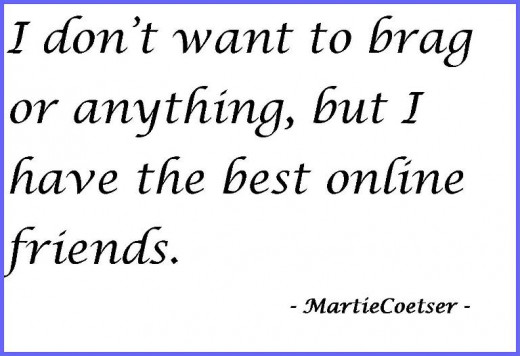
A perfect example of true bragging -
My dearest friend, fellow-hubber and fellow Aries, fpherj48, presents a perfect example of true bragging -
Oh MY! Indeed Martie, bragging is such a drag. I can't imagine how anyone ever has the audacity to brag to me when they couldn't possibly be as perfect as I am. Of course, I needn't go on and on about all my magnificent talents and achievements because they're all so evident.
Everyone who knows me is well aware of my high intelligence, wealth and ravishing beauty. Oh , don't let me forget to mention to you that I bought a new fabulous home in Dubai.......right next to the Sheik and his royal family. They are beside themselves with glee that someone of my fame and fortune has chosen to reside in their neighborhood. Of course they should be.
I've had such a marvelous summer on my private island in the Caribbean....too bad you couldn't have spent some time here. We had lavish cocktail parties every evening and shopped all day long.
And that rascal Mortimer bought me yet another precious gem of diamonds and emeralds to add to my world-famous collection.
Well, enough about ME darling......Please tell me, what do YOU think of me?
Fondly,
Princess Francesca
Conclusion
Bragging, or the announcement of personal achievements, is the norm in cyberspace. If we can't handle it, we should stop torturing ourselves by reading status updates on social sites.
Feel free to share your opinion in the comment section!
© 2015 Martie Coetser

